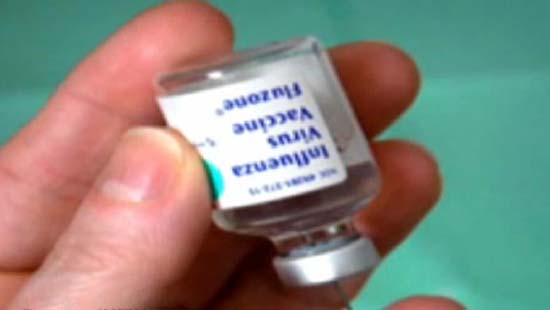Can a Vaccine Cure Obesity?

Get the world’s most fascinating discoveries delivered straight to your inbox.
You are now subscribed
Your newsletter sign-up was successful
Want to add more newsletters?

Delivered Daily
Daily Newsletter
Sign up for the latest discoveries, groundbreaking research and fascinating breakthroughs that impact you and the wider world direct to your inbox.

Once a week
Life's Little Mysteries
Feed your curiosity with an exclusive mystery every week, solved with science and delivered direct to your inbox before it's seen anywhere else.

Once a week
How It Works
Sign up to our free science & technology newsletter for your weekly fix of fascinating articles, quick quizzes, amazing images, and more

Delivered daily
Space.com Newsletter
Breaking space news, the latest updates on rocket launches, skywatching events and more!

Once a month
Watch This Space
Sign up to our monthly entertainment newsletter to keep up with all our coverage of the latest sci-fi and space movies, tv shows, games and books.

Once a week
Night Sky This Week
Discover this week's must-see night sky events, moon phases, and stunning astrophotos. Sign up for our skywatching newsletter and explore the universe with us!
Join the club
Get full access to premium articles, exclusive features and a growing list of member rewards.
Obese people may one day be able to get a vaccine to help them lose weight, a new study in mice suggests.
The vaccine is designed to block the appetite-stimulating hormone ghrelin. Mice injected with the vaccine ate less and burned more calories than mice not given the vaccine.
If such a vaccine were developed for human use, it would have advantages over current weight-loss drugs, which have side effects and cannot be used over the long term, said study researcher Dr. Mariana Monteiro, an associate professor at the University of Porto in Portugal. For example, the drug Merida was withdrawn from the market last year because of concerns it could increase heart attack and stroke risks., appears to be safe so far, and its effects on the mice may last for years, the researchers said.
However, other experts argue that while an obesity vaccine sounds appealing, in reality, the body's way of regulating appetite and weight gain is too complex for a vaccine to solve.
"I think that an obesity vaccine is pretty far-fetched," said Dr. Pieter Cohen, an assistant professor of medicine at Harvard Medical School and a general internist at Cambridge Health Alliance. "It's extremely unlikely we'll be able to develop a vaccine that will prevent weight gain ," Cohen said.
Obesity vaccine
To develop the vaccine, Monteiro and her colleagues attached ghrelin to harmless, viruslike particles. The idea is that once injected, the body's immune system will develop antibodies against ghrelin, suppressing the hunger-causing hormone.
Get the world’s most fascinating discoveries delivered straight to your inbox.
Obese mice ate 50 percent less food after receiving the vaccine (three shots in total) than mice who did not receive the vaccine. The vaccinated mice also expended more energy.
The vaccine's appetite-suppressing effects lasted for 18 months in the mice, which is the equivalent of four years in people, Monteiro told MyHealthNewsDaily.
More work is needed to find whether suppressing ghrelin affects other body processes over the long term, Monteiro said. Ghrelin is involved in other functions, including bone turnover, she said.
A 2006 study also showed it was possible to block ghrelin in animals using a vaccine. But Monteiro's study used a different approach for generating the immune response, which she says is safer
A complex problem
Many signals in the body regulate appetite and energy expenditure, and it's unrealistic to think a vaccine targeting one hormone could do the trick in terms of weight loss, Cohen said.
Other experts agree. "Most of us are skeptical that 'turning off the ghrelin switch' is the universal answer to all obesity," said Dr. Sunil Bhoyrul, a bariatric surgeon at Scripps Memorial Hospital in La Jolla, Calif.
While the study is "good science," it's just "the first step in a medical approach to a complex problem," Bhoyrul said. Researchers need to study patients' DNA to have a better understanding of why certain individuals become obese, and how to treat their obesity, he said.
The new study was presented June 5 at the annual meeting of Endocrine Society in Boston.
Pass it on: An "obesity vaccine" is a good idea, but isn't yet ready for human use.
This story was provided by MyHealthNewsDaily, sister site to LiveScience.

Rachael is a Live Science contributor, and was a former channel editor and senior writer for Live Science between 2010 and 2022. She has a master's degree in journalism from New York University's Science, Health and Environmental Reporting Program. She also holds a B.S. in molecular biology and an M.S. in biology from the University of California, San Diego. Her work has appeared in Scienceline, The Washington Post and Scientific American.
 Live Science Plus
Live Science Plus





